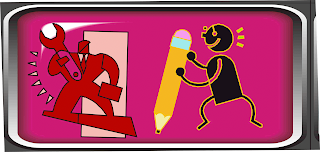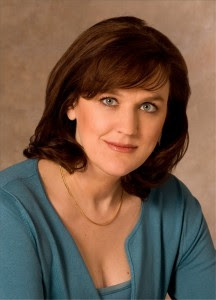> I love to drive. And be in control (or have the illusion that I’m in control.) Everyone who’s been on a road trip with me knows this, and fortunately, my husband, daughter, and best friends don’t prefer to drive, so that works. But sometimes—like when I go out for the evening with my husband—I have the opportunity to view the road from a different vantage point. And it’s hard not to be a backseat driver!
I love to drive. And be in control (or have the illusion that I’m in control.) Everyone who’s been on a road trip with me knows this, and fortunately, my husband, daughter, and best friends don’t prefer to drive, so that works. But sometimes—like when I go out for the evening with my husband—I have the opportunity to view the road from a different vantage point. And it’s hard not to be a backseat driver!
 The same is true when I read a new book. I’ve participated in enough manuscript critique workshops to have my mind crammed with “dos” and “don’ts” and rules of writing—some offered by faculty at workshops, but most offered by other emerging writers who, like me, don’t have a book published yet. Don’t get me wrong—they often give great advice—but sometimes the feedback feels a little too legalistic. For example:
The same is true when I read a new book. I’ve participated in enough manuscript critique workshops to have my mind crammed with “dos” and “don’ts” and rules of writing—some offered by faculty at workshops, but most offered by other emerging writers who, like me, don’t have a book published yet. Don’t get me wrong—they often give great advice—but sometimes the feedback feels a little too legalistic. For example:
 The whole “show, don’t tell” rule makes me weary. And finally, in a recent workshop, a faculty member blew it away with good points about how it’s the way you “tell” that’s the important thing. Great narrative can carry the reader as well as page-turning scenes. But yes, it does have to be great.
The whole “show, don’t tell” rule makes me weary. And finally, in a recent workshop, a faculty member blew it away with good points about how it’s the way you “tell” that’s the important thing. Great narrative can carry the reader as well as page-turning scenes. But yes, it does have to be great.
And then there’s this one that I get a lot: “Quit explaining.” I usually get this criticism when I’m pausing the action in my story with a bit of narrative about issues—like sexual abuse, depression, etc. “You don’t need to explain about this if you show us in the plot of the story,” they say. Sigh. So I head back to my manuscript and try to flesh out more scenes (which often does help) but too many of those rabbit-trails can also distract from the main plot. So I end u,p frustrated, and often put those “explanations” right back into the manuscript where I feel they belong.
 So, when I was finishing up best-selling novelist, Joshilyn Jackson’s fourth novel, “Backseat Saints,” this weekend, I was thrilled to see her pause the action to “explain” some things to her readers from time to time. Did it make me want more scenes? Not at all. In fact, I think extra scenes could have been confusing. Three-fourths of the way through the book she has Rose Mae’s mother tell her about several of her clients’ “issues”—like cutting and over-eating and bulimia—without using scenes to explore these issues. Scenes weren’t called for at that point, but a little explanation helped, in my opinion.
So, when I was finishing up best-selling novelist, Joshilyn Jackson’s fourth novel, “Backseat Saints,” this weekend, I was thrilled to see her pause the action to “explain” some things to her readers from time to time. Did it make me want more scenes? Not at all. In fact, I think extra scenes could have been confusing. Three-fourths of the way through the book she has Rose Mae’s mother tell her about several of her clients’ “issues”—like cutting and over-eating and bulimia—without using scenes to explore these issues. Scenes weren’t called for at that point, but a little explanation helped, in my opinion.
Jackson’s latest novel is every bit as colorful and gritty as her previous three (“gods in Alabama,” “Between, Georgia,” and “The Girl Who Stopped Swimming”) and the language continues to sing. One thing I love about her writing is the way she uses imagination to bring the human element to her stories. Cadillacs turned on their noses in the desert with graffiti on them. A gypsy who reads cards and helps abused women escape their husbands through an “underground railroad” called the Saint Cecilias. A homeless man who calls everyone he passes a “bull daggahhh.” And a three-legged dog (I won’t tell you why—you’ll have to read the book!) named Fat Gretel.
 It’s always apparent that Jackson does her homework before she starts spinning one of her exceptional yarns. I remember when she wrote in her blog last year about going to a shooting range to learn to shoot a gun, which helped her write believable scenes involving a gun in this book. (I’m wondering if she also visited a fortune-teller!) It’s also apparent that she cares deeply about issues that so many women face today, like domestic violence, sexual abuse, and eating disorders. But she doesn’t preach. She gets up above all that stuff and tells a terrific story every time.
It’s always apparent that Jackson does her homework before she starts spinning one of her exceptional yarns. I remember when she wrote in her blog last year about going to a shooting range to learn to shoot a gun, which helped her write believable scenes involving a gun in this book. (I’m wondering if she also visited a fortune-teller!) It’s also apparent that she cares deeply about issues that so many women face today, like domestic violence, sexual abuse, and eating disorders. But she doesn’t preach. She gets up above all that stuff and tells a terrific story every time.
I also love the way she weaves the mystical into her stories—in this case a touch of Catholic mysticism and a little history of a few lesser known saints. Again, she gives us the information we need without boring us or preaching to us. Her narrative keeps moving the story forward. Since I’m infusing my own WIP (work in progress) with bits of mysticism (Orthodox, rather than Catholic) and most of my writing circles around issues like abuse, addiction, etc., I’m taking notes from the masters, and Jackson is one of them.
If there’s anything about the book that didn’t blow me away, I’d have to say it was the ending. I’m struggling with the ending to my own novel, so I know this is a difficult but crucial aspect of any story. And I’ve been told that I have a tendency to want to tie everything up too neatly, which often isn’t what happens in real life. So maybe the “messy” way the book ended is good. It definitely leaves something to the reader’s imagination… it leaves us wanting more. Like maybe a fifth novel, Joshilyn? I’m in.
[Joshilyn encouraged me to start this blog, three years ago next month, when I met her at the first ever Mississippi Writers’ Guild Conference.]